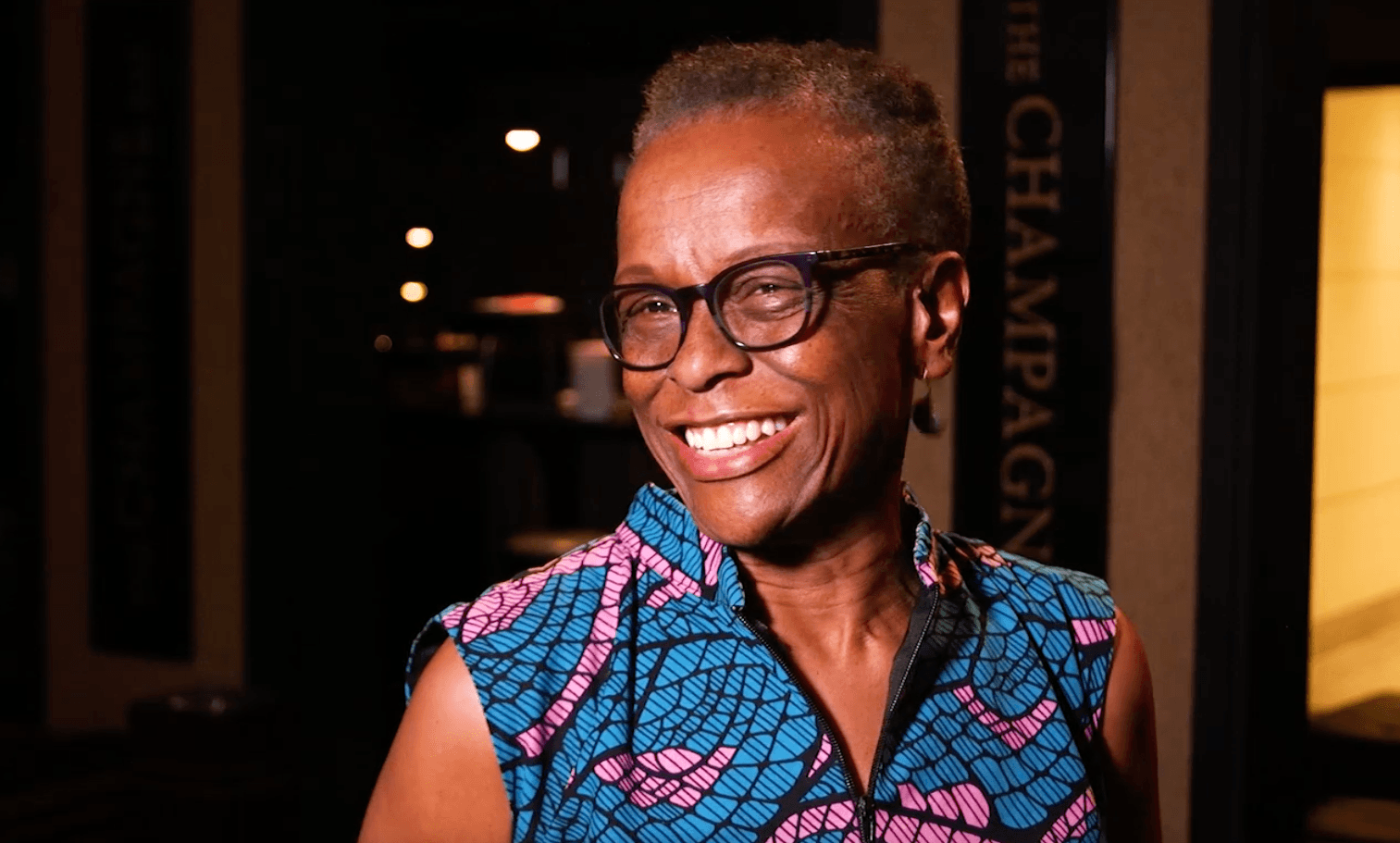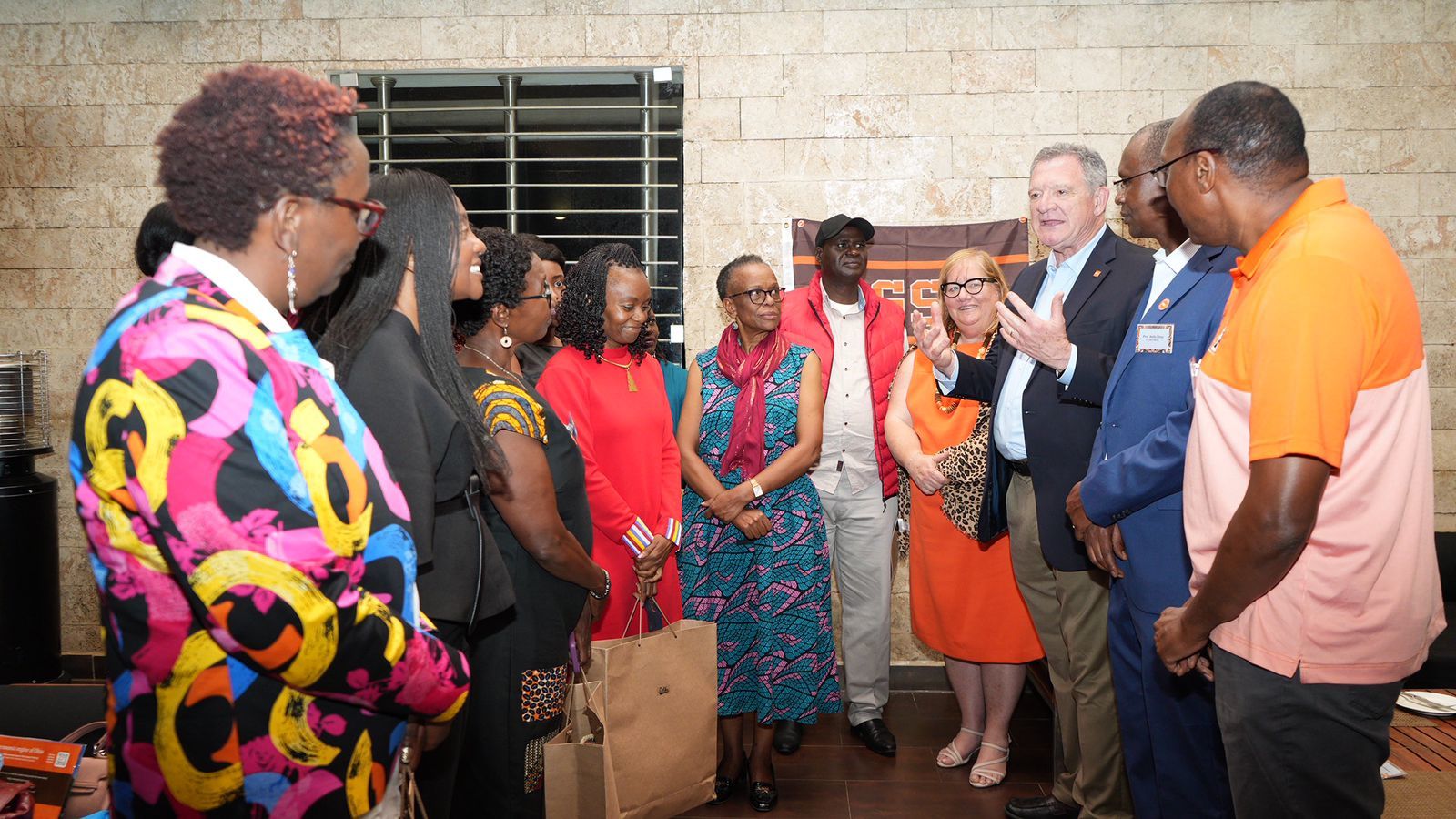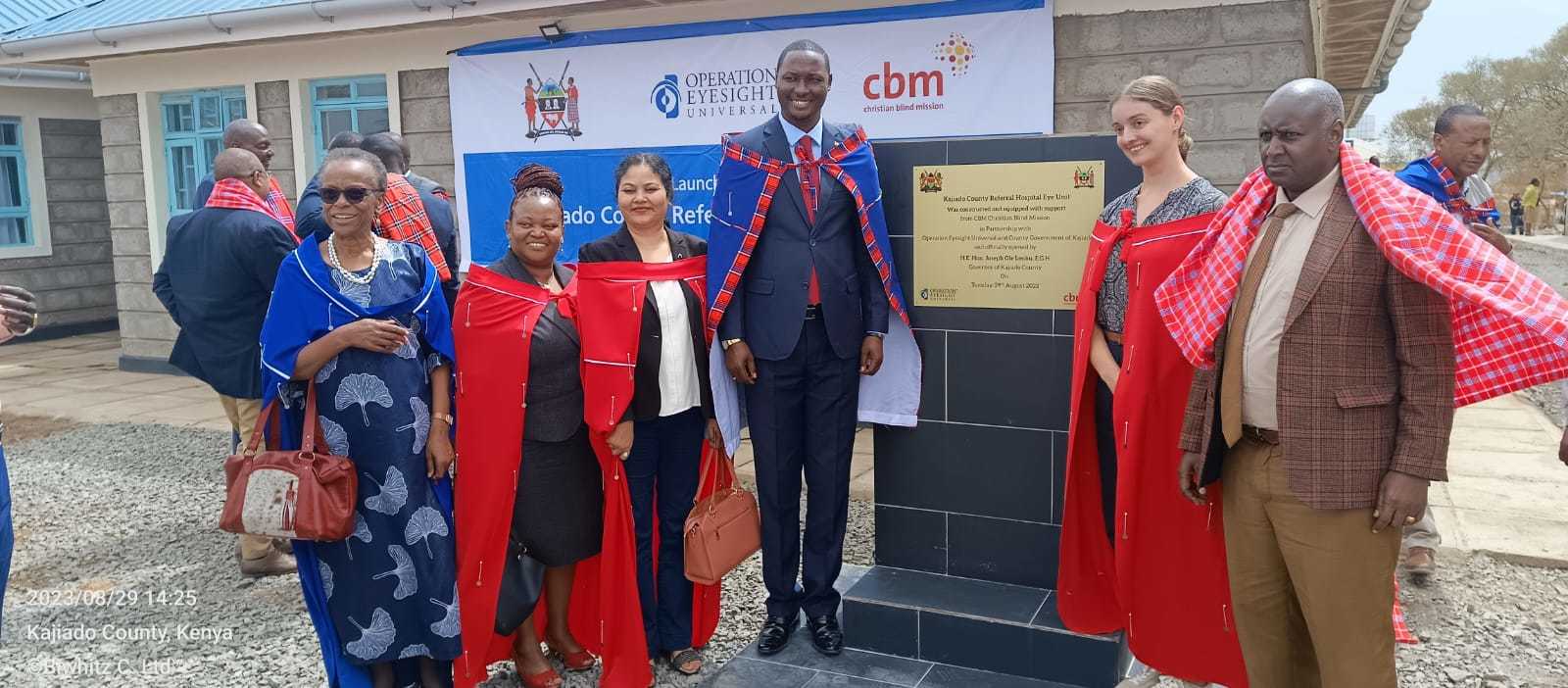
BGSU alumna, a leading public health expert in Kenya, is integral in changing the global approach to parasitic diseases
Estimated Reading Time:
Dr. Njeri Wamae ‘80 credits the University with setting her on a path of creating public good for millions of marginalized populations affected by neglected tropical diseases
As a renowned researcher dedicated to improving global public health, Dr. Njeri Wamae ‘80 has made substantial discoveries in parasitic disease treatment impacting impoverished communities worldwide — a career path she followed after a formative experience in a Bowling Green State University medical entomology class.
Wamae has led research resulting in new treatments and increased accessibility of medication and coverage for those affected by neglected tropical diseases, a group of 20 conditions prevalent in developing tropical regions caused by microorganisms like viruses, fungi, bacteria and parasites.
She also was integral in helping her native Kenya become certified by the World Health Organization in 2018 as free from guinea worm disease, a condition that affected 3.5 million people annually in the mid-1980s.
“My career has been very fulfilling and exciting, and I’m still very hopeful we will eliminate most of these tropical diseases in my lifetime,” Wamae said. “I don’t think I can thank BGSU and my professors enough for preparing me for this work.”
Wamae arrived at the University in 1978 after transferring from a private liberal arts college in North Carolina.
Discovering a new path
She initially majored in food science and technology, intending to return to Kenya to help improve nutrition and food security. As a part of the degree program, Wamae took a medical entomology class, during which she wrote a research paper on an insect of her choosing.
While researching, Wamae saw a photograph in a book of a young boy guiding an African man with a cane. She learned that river blindness, a neglected tropical disease prominent in Africa and caused by a parasitic worm (Onchocerca volvulus), had resulted in the man losing his eyesight.
“Food science and technology is about food safety and enriching the nutrition of people,” Wamae said. “I started to realize it doesn’t matter how nutritious or safe the food is if what they’re eating is being stolen by parasites residing in their stomachs or other organs rather than supporting their growth and development.
"That medical entomology class was the turning point in my future, and I never looked back.”
Wamae graduated from BGSU in 1980 with a bachelor’s degree in parasitology and medical entomology, known today as biology. She is one of many Kenyan alumni creating public good in their communities and worldwide, representing the positive impact of the continued collaborations between BGSU and Kenya.
Wamae has fond memories of her experience at BGSU and can recall the names of many of her professors, a testament to their profound impact on her as a young Kenyan yearning to become the first in her family to earn a college education thousands of miles from home in the U.S.
As a student, she completed an internship with the Wood County Health Department and worked alongside a BGSU science professor as a research assistant, further igniting her desire to become a biomedical research scientist.
“All of my experiences at BGSU were incredibly impactful,” Wamae said. “I interacted with great professors and mentors who have positively impacted my career.”

Creating global public good
Wamae returned to Kenya briefly after graduating from BGSU. She was then awarded a scholarship from the WHO to attend Tulane University in New Orleans.
Wamae graduated with a Master of Science and Public Health in 1985 and received her doctorate in philosophy and tropical medicine from Tulane in 1995.
Wamae spent more than 30 years at the Kenya Medical Research Institute, the medical research arm of the Kenyan government, leading significant advancements in global public health. She rose in the ranks from assistant research officer to chief research officer.
Among her many accomplishments was an innovation in community-directed treatment for parasitic diseases. Health centers are often located far from communities, which increases the difficulty in accessing proper treatment. Wamae led a study to compare a drug delivery method using community members versus health centers as part of a multi-country study.
“Using community members to deliver medication to infected individuals proved more effective,” Wamae said. “Based on the findings from that study, the World Health Organization adopted that method throughout the world for lymphatic filariasis and subsequently for the five preventive chemotherapy treatment-targeted at neglected tropical diseases. The impact has had far-reaching effects beyond the Kenyan borders.”
Wamae also has made incredible strides in drug innovation, determining through comprehensive studies that the combination of two drugs (diethylcarbamazine and albendazole) was more effective in suppressing infections of lymphatic filariasis, also known as elephantiasis, and intestinal parasites.
While at KEMRI, Wamae ran its Centre for Microbiology Research and was the founding director of The Eastern and Southern Africa Centre of International Parasite Control.
She served as a professor of tropical medicine and dean of the School of Pharmacy and Health Sciences at the Nairobi-based United States International University-Africa. Wamae is now an advisor and consultant, continuing to impart her expertise in parasitic diseases to improve the lives of others.
Her research has been published widely in peer-reviewed journals and Wamae has mentored many students and colleagues, some of whom have become well-known health leaders locally and globally.
"Unlike money, knowledge may not be kept in a bank savings account to earn interest," Wamae said. "It earns one passive and residual interest from imparting it on students and mentees, as a public good.
“I am very appreciative of the people who have worked with me and mentored me along the way at BGSU and elsewhere, including Dr. Roger Thibault, Robert Schuck and all the host families who showered me with loving care. I still remember my parasitology professor, Dr. Francis Rabalais. I really admired the way he delivered his lectures. He was so well-versed in parasitology and was at such ease with his lecture delivery. I wanted to be just like him.”

Related Stories
Media Contact | Michael Bratton | mbratto@bgsu.edu | 419-372-6349
Updated: 04/24/2024 09:56AM




